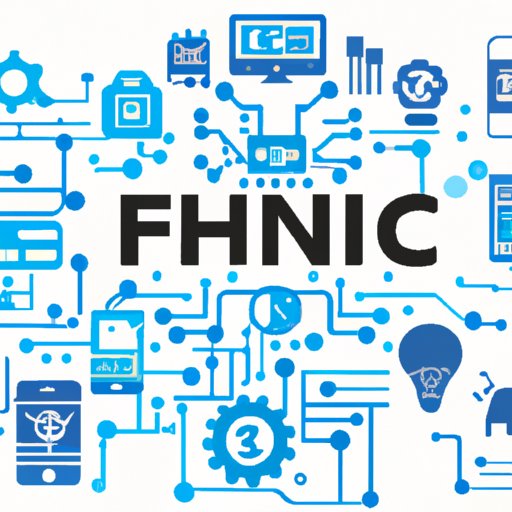Introduction
Fintech, or financial technology, is a rapidly growing sector that has come to revolutionize the way we manage our money. From automated investment platforms to mobile banking apps, fintech has made it easier than ever to access financial services and products. But what does the future of fintech look like? In this article, we will explore the potential of fintech in transforming the financial industry and assess how banks can adapt to an increasingly digital world.
Definition of Fintech
Fintech is a broad term that encompasses any kind of technology used to facilitate financial transactions and services. This includes everything from online payment systems to blockchain-based cryptocurrencies. In recent years, fintech has become more popular as advancements in technology have allowed for faster and more secure financial transactions. As a result, many traditional financial institutions have begun to integrate fintech into their services.
Overview of the Rising Impact of Fintech on Financial Industry
Fintech has had a dramatic impact on the financial industry in recent years. According to a report by the World Economic Forum, the global fintech market is expected to grow to $309 billion by 2022. This growth is largely due to the cost savings, improved efficiency, and increased competition that fintech offers to financial institutions. In addition, fintech has enabled the emergence of new business models, such as peer-to-peer lending and crowdfunding.

Benefits and Challenges of Fintech for Financial Institutions
Fintech presents both benefits and challenges for financial institutions. On the one hand, fintech can provide cost savings through automation and streamlining of processes. This can result in lower overhead costs and improved customer service. In addition, fintech can help to improve efficiency, as well as increase competition among financial institutions. However, there are also regulatory challenges that must be addressed in order for fintech to be successful.

Disruptive Potential of Fintech in Transforming Financial Services
The disruptive potential of fintech cannot be overstated. By automating and streamlining processes, fintech can significantly reduce the cost and time required to complete financial transactions. In addition, fintech has enabled customers to have greater control over their finances, as well as expanded their options when it comes to financial services and products. Finally, fintech has made financial services more accessible, particularly for those who are unbanked or underbanked.
Analyzing the Regulatory Environment for Fintech in Finance
As fintech continues to grow, it is important to consider the regulatory environment in which it operates. Regulators must balance the need to protect consumers with encouraging innovation. This means creating regulations that are agile enough to respond to emerging technologies while ensuring that risks are managed appropriately. Additionally, regulators must ensure that all players in the financial system are held to the same standards.
Assessing the Role of Banks in an Increasingly Fintech-driven World
As fintech continues to gain traction, banks must find ways to remain competitive in this changing landscape. Digitalization has transformed traditional banking models, forcing banks to focus more heavily on customer experience and data analytics. At the same time, banks must recognize the potential of fintech and seek out opportunities for collaboration. This could involve partnering with fintech companies to develop new products and services or investing in emerging technologies.

Comparing Fintech Solutions to Traditional Financial Tools
It is important to understand the advantages and limitations of both fintech solutions and traditional financial tools. Fintech solutions are often more efficient and cost-effective than traditional tools, as they can automate and streamline processes. However, they may also be less secure, as they rely on digital networks that can be vulnerable to cyberattacks. Traditional financial tools, on the other hand, may be more secure but are often more expensive and time consuming.
Investigating the Role of Artificial Intelligence (AI) in Fintech
AI is playing an increasingly important role in fintech. AI can be used to automate and streamline processes, as well as improve accuracy and security. However, it is important to consider the ethical implications of using AI in fintech, as algorithms can present biases that could lead to unfair outcomes. Additionally, AI can be used to make decisions without human oversight, which raises questions about accountability and responsibility.
Conclusion
Fintech is undoubtedly transforming the financial industry. It has the potential to revolutionize financial services by providing cost savings, improved efficiency, and enhanced accessibility. However, fintech also presents challenges, such as regulatory compliance and cybersecurity. Banks must find ways to collaborate with fintech companies in order to remain competitive in this increasingly digital world. Ultimately, the success of fintech will depend on its ability to strike a balance between risk and innovation.
Summary of Findings
This article explored the potential of fintech in transforming the financial industry. We examined the benefits and challenges that fintech presents to financial institutions, its potential to disrupt traditional financial services, and the need for collaboration between banks and fintech companies. We also discussed the regulatory environment for fintech and the role of artificial intelligence in fintech. Our findings suggest that, if regulated appropriately, fintech can offer significant cost savings, improved efficiency, and enhanced accessibility for customers.
Recommendations for Further Research
Further research is needed to better understand the implications of fintech on the financial industry. This could include studies on the impact of fintech on consumer behavior, the impact of digitalization on traditional banking models, and the role of artificial intelligence in fintech. Additionally, research should be done to examine the ethical implications of using AI in fintech, as well as the potential for bias in algorithmic decision-making.
(Note: Is this article not meeting your expectations? Do you have knowledge or insights to share? Unlock new opportunities and expand your reach by joining our authors team. Click Registration to join us and share your expertise with our readers.)
